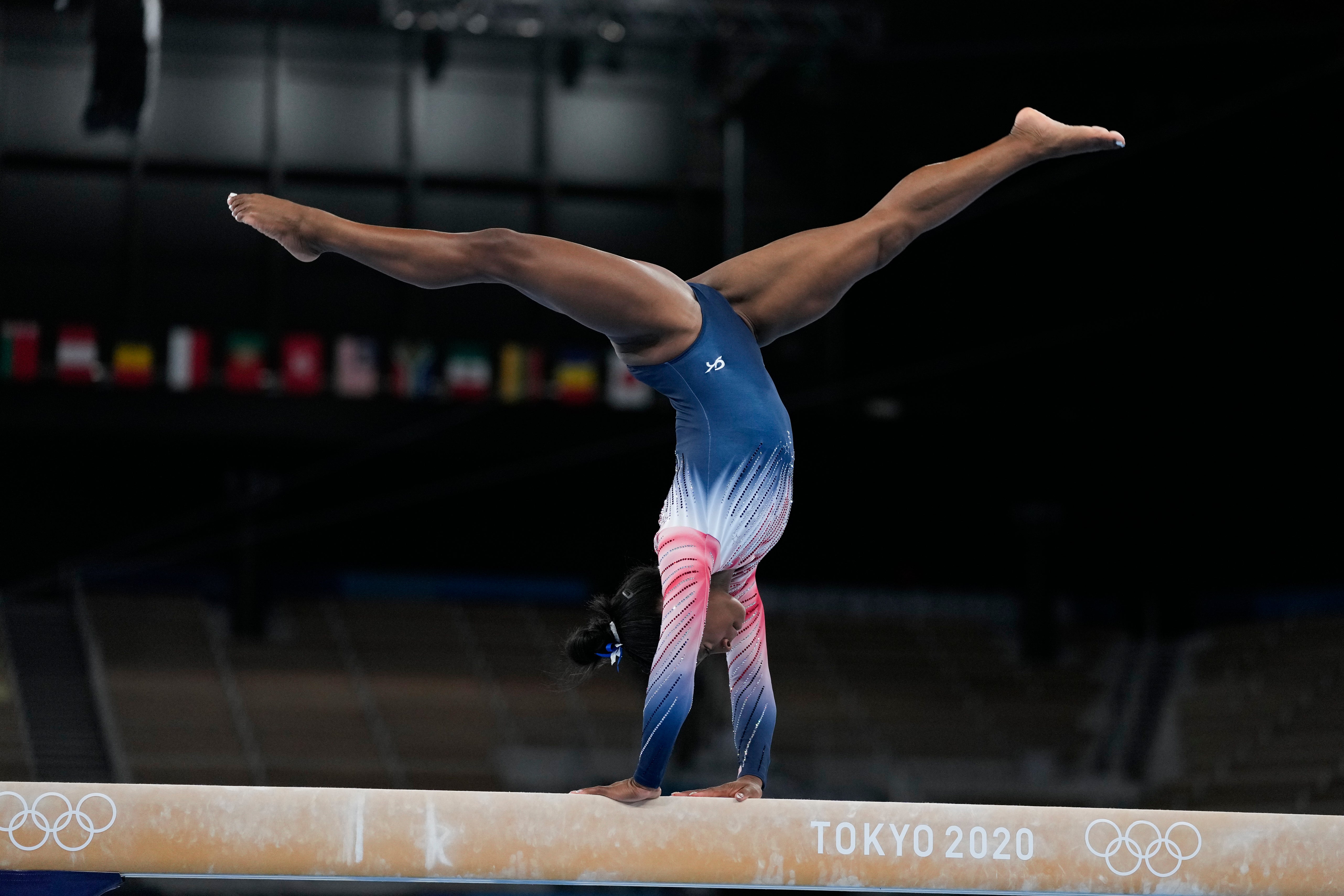Simone Biles wins bronze on return to Tokyo Olympics as China’s Guan Chenchen takes balance beam gold
Biles competed in her only final of the Tokyo Games after pulling out of other events to protect her mental health, and won her seventh Olympic medal

Your support helps us to tell the story
From reproductive rights to climate change to Big Tech, The Independent is on the ground when the story is developing. Whether it's investigating the financials of Elon Musk's pro-Trump PAC or producing our latest documentary, 'The A Word', which shines a light on the American women fighting for reproductive rights, we know how important it is to parse out the facts from the messaging.
At such a critical moment in US history, we need reporters on the ground. Your donation allows us to keep sending journalists to speak to both sides of the story.
The Independent is trusted by Americans across the entire political spectrum. And unlike many other quality news outlets, we choose not to lock Americans out of our reporting and analysis with paywalls. We believe quality journalism should be available to everyone, paid for by those who can afford it.
Your support makes all the difference.Simone Biles returned to the Olympic stage, dazzled on the balance beam and left with another medal for her collection. It would be a stretch to say the beam is her weak apparatus given she is a three-time world champion, but after such a week and against tough competition from China and her own teammate Sunisa Lee, matching the bronze she won in Rio was a remarkable feat.
“I wasn’t expecting a medal, I just came out here and tried to do a good beam set,” said Biles, who paid tribute to China’s gold and silver duo Guan Chenchen and Tang Xijing. “Just to have one more opportunity to compete at the Olympics meant the world to me.”
Of course the competition was only a sub-plot. The face of these Tokyo Games has been wrestling with her mental health and suffering the terrifying “twisties” in mid-air which made her feel unsafe to compete. She had withdrawn from her first five events, ending any hope of repeating her historic quadruple gold medal haul in 2016, but the beam offered her a chance to perform without spinning through a vortex.
“I had to be medically evaluated every day and then I had two sessions with a sports psychologist from Team USA, but I’ve been training,” she said. “We just decided last minute to switch the dismount [to double pike] which I probably haven’t done since I was like 12 years old because I’ve always twisted off. But on the beam that work is easy, I’ve always been able to do it.”
Such is the power of Biles that as she entered the Ariake Arena and walked around its perimeter, she caused a Mexican wave of onlookers standing to applaud her pass. There were no fans of course, but the stand behind the beam was nearly packed: word had got around that she would be performing and hundreds of members of the “Olympic family” – the IOC’s dignitaries, officials and VIP guests – had found a way to be there.

Biles competed third. Her first complex segment involved four successive back flips and the arena held its collective breath as she landed, wobbled and then found herself. Then came the dismount: two backflips into double pike, notably avoiding any twisting in the air, and as she stuck the landing the makeshift crowd broke into enthusiastic applause.
It earned her a score of 14.000, slightly lower than her qualifying total, and left her in second place behind China’s Tang with five more finalists to compete. In the final routine the 16-year-old Guan earned gold with an immaculate routine and a huge score of 14.633, to leave Tang with silver and Biles bronze. USA’s Lee struggled to recapture the magic of her all-around win a few days ago, and as she left the stage she was consoled by Biles.
Biles was greeted by the IOC president Thomas Bach as she departed, before she was applauded by a noisy contingent of USA Gymnastics and snuck off to FaceTime her family at home in Texas. “They had a little watch party at the house: my mum, my dad, my brother, my sister-in-law, my godparents. They just wanted to say hi and stuff like that. Almost every day I've gotten to talk to them which has been really nice and reassuring.”
She was back a few minutes later for the ceremony. Her seventh Olympic medal felt like only a footnote in the grander scheme, but perhaps it offered a little solace at the end of a torrid few days in which she said she was proud to have started a global conversation about mental health.
“I think it should be talked about a lot more, especially with athletes because I know some of us are going through the same things and we’re always told to push through. We’re a little bit older now and we can speak for ourselves. At the end of the day we’re not just entertainment, we’re humans and there are things going on behind the scenes that we’re also trying to juggle with on top of sports.”
Join our commenting forum
Join thought-provoking conversations, follow other Independent readers and see their replies
Comments